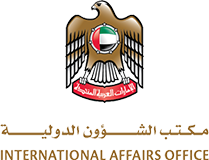
Global Food Security
By 2050, the world must feed some 2 billion people more people. With its arid desert climate, scarce arable land, and limited fresh water, the UAE is already experiencing challenges that will increasingly be faced by other countries.
The Global Food Security Index
The Global Food Security Index (GFSI) considers the core issues of affordability, availability, and quality across a set of 113 countries. The index is a dynamic quantitative and qualitative benchmarking model, constructed from 28 unique indicators, that measures the drivers of food security across both developing and developed countries.
The UAE is currently considered stable when it comes to food security, with key strengths in availability and food quality and safety. By 2051, the UAE aims to attain the #1 place in the Index.
Global Statistics
- The global population is projected to reach 10 billion by 2050
- Nearly one-third of all food produced globally—around 1.3 billion tons—is wasted each year
- Agriculture uses 70% of the world’s freshwater resources, with many regions facing critical shortages
UAE Food Security Challenges:
The UAE’s National Food Security Strategy 2051
The UAE National Food Security Strategy 2051 aims for its population to have access to sufficient, safe, nutritious food for an active and healthy life at affordable prices at all times. The strategy specifically aims to implement resilient agricultural practices that increase productivity and production, which helps maintain ecosystems.
Strategic targets for the National Food Security Strategy
International Collaborations:
The UAE has played a leading role in fostering international collaboration and investments to improve the strength of food and water systems globally
- $200M partnership with the Gates Foundation to accelerate action on climate and strengthen food systems through investment in agricultural innovation
- $4B AIM for Climate (UAE-US) investment to speed up innovation in climate-smart agriculture
- $2B investment in India’s ‘food parks’ to ease shortages
- $50 million tripartite investment with Brazil and Cuba to enhance the resilience of global food systems announced at COP28.
- Oversaw the landmark Emirates Declaration on Sustainable Agriculture, Resilient Food Systems, and Climate Action signed by 160 countries at COP28





